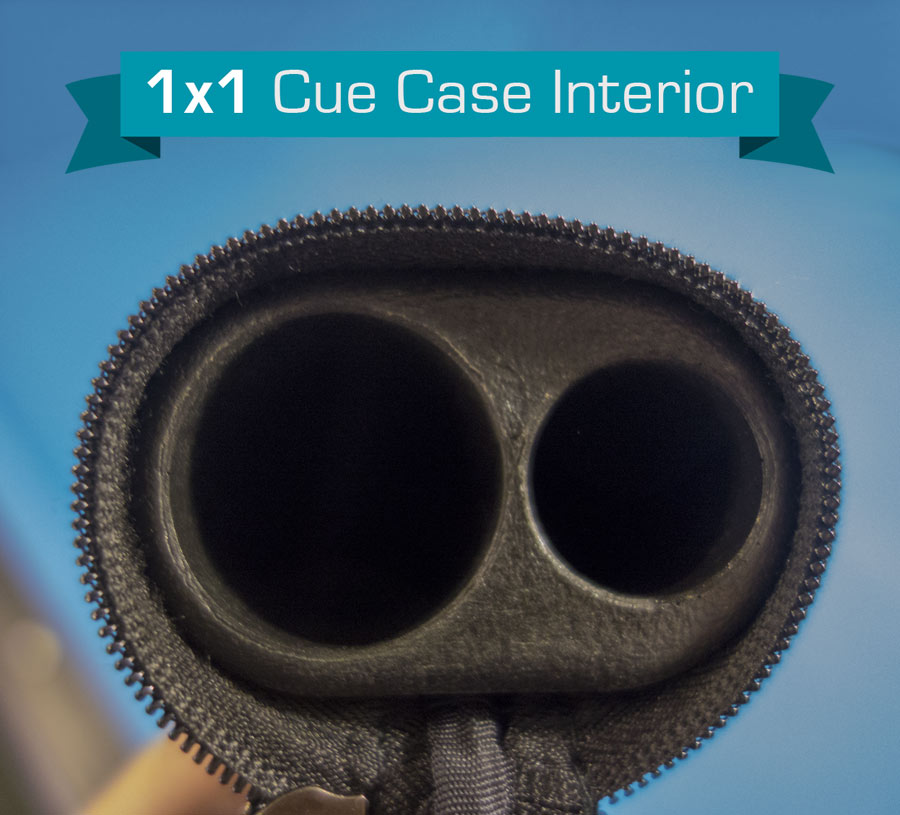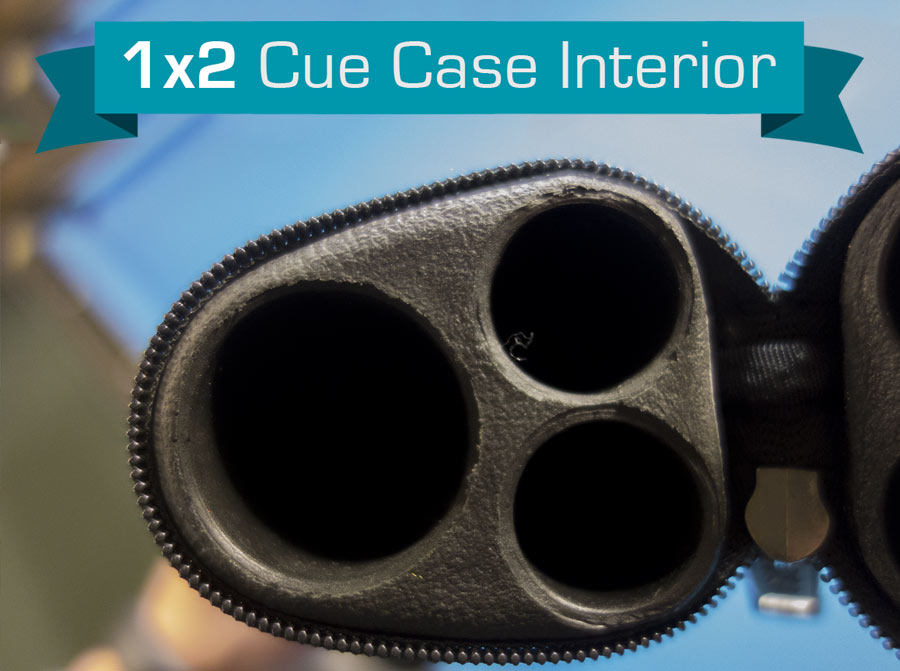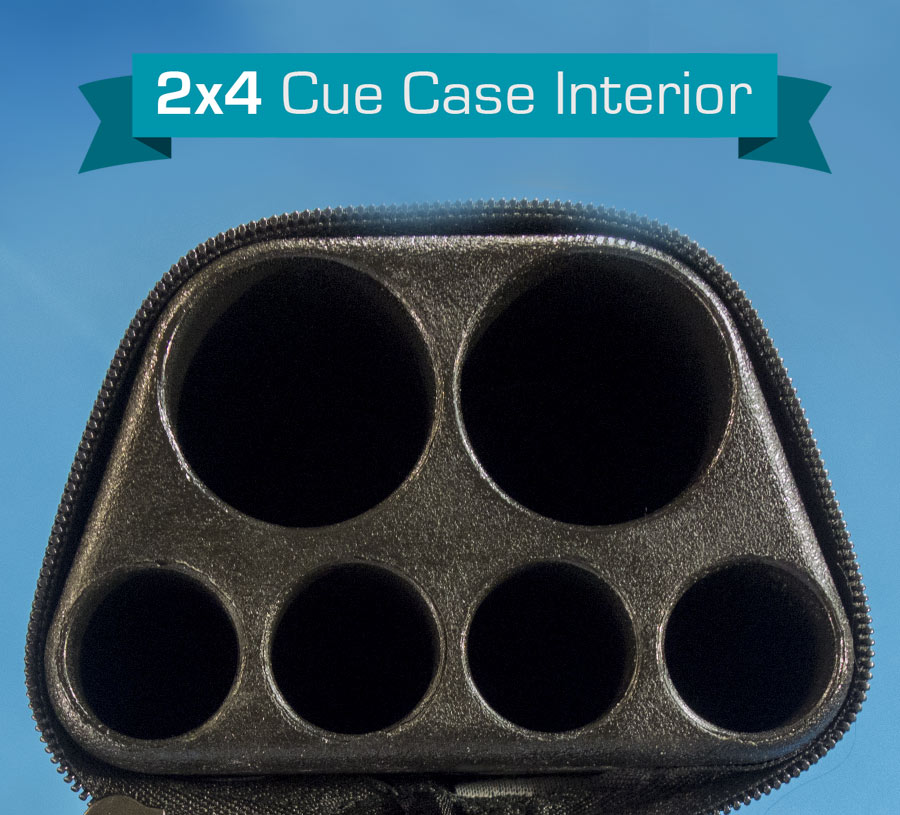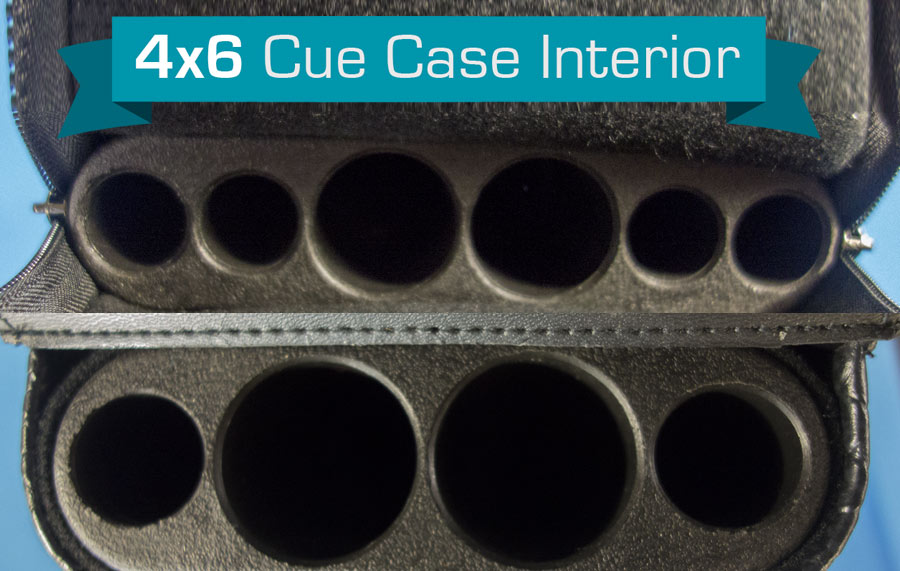Deciding between a soft or a hard case
How do you choose whether you should get a soft cue case or a hard cue case? As with nearly anything in life, there are pros and cons to each of the varieties and different cases are suitable for different types of players. Lets take a look at the soft case first:
Soft Cue Case
The benefit to the soft case, and the reason why many people like them over hard cases, is that many of them allow you to unzip the case fully and take a look at your cues in more of a “presentational” way. Maybe you like to take stock of your cue inventory when you set up at a pool hall. The ceremony of unzipping the case is a great way to show off your cues and you can really only get that with a soft case.
It’s probably pretty obvious but soft cases are called “soft” because if the case is empty, you can flex the case. You can usually fold the case nearly in half if there are no cues inside a soft case. This means that the case is more prone to warping your cue over long periods of time since there’s less rigidity to the case structure. You wouldn’t want to leave your pool cues in a soft case if you were going to be leaving them in a hot car for days on end.
Finally worth noting is that soft cases are typically lighter than their hard case siblings. If weight is a factor in your traveling, a soft case might be better for you.
Hard Cue Case
When compared to soft cases, hard cases are, well, hard. These cases usually have a rigid internal structure to them which keeps the cues very secure and protected from damage. Unlike a soft case, you can not fold an empty hard case in half, regardless of whether there are cues inside it. This means the cues are a bit more safe from breakage and warping (though you still shouldn’t leave them in hot or damp environments for long periods of time).
Unlike soft cases, hard cases usually do not unzip. They have flaps on the top that open on a hinge and allow you to withdraw your cues that way. If you are the kind of person who doesn’t need to show off your collection every time you take a cue out, a hard case might be a better choice for you. Hard cases also have the benefit of being a bit more compact overall.
Most people start with a 19 ounce or a 20 ounce cue. Those weights are in a sweet spot for most players so, if you’re still totally unsure what cue weight to get, get a 19 ounce. As you play with it, you’ll begin to get a feel for your particular play style and your local pool cue repair shop can adjust the weight when you’re ready to change it up.




